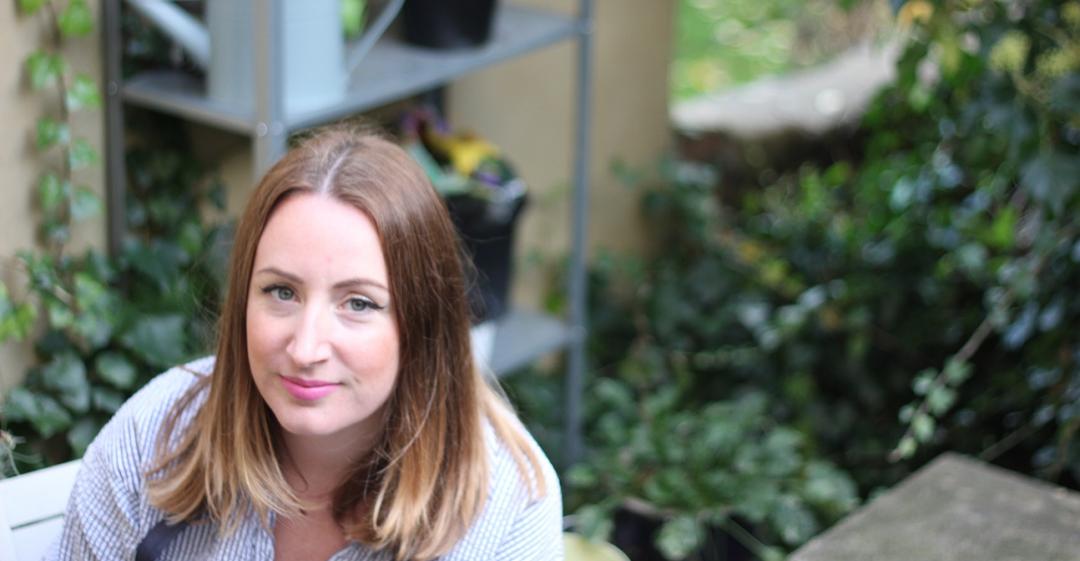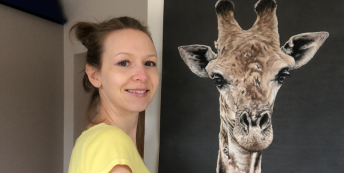“I know that any sleepless night, any moment of stress and struggle, is for something I truly believe in.”

What work were you doing previously?
I spent ten years working in IT for blue-chip companies.
I’ve been a software developer, business analyst, project manager and data visualisation designer.
What are you doing now?
I run an organic broth company called the Borough Broth Co.
How did you feel in your work before you decided to make the change?
I really enjoyed my job.
I worked extremely hard at times, but was often left feeling unfulfilled.
Why did you change?
I had to completely leave my IT career after the Borough Broth Co had got to the point where we needed to take the business to the next stage.
When was the moment you decided to make the change?
I actually started my company as a sideline.
It was something to find purpose from. I also wanted to give something a go that was a passion but completely different from my current career.
How did you choose your new career?
I feel that it chose me.
I experienced a real moment of clarity when I was offered free broth ingredients in exchange for some marketing advice. I had a strong feeling that if I were to really give it a go and try to make it a business, it would change my life.
Are you happy with the change?
I couldn't be more happy.
Running a business is certainly a challenge, but I know that any sleepless night, any moment of stress and struggle, is for something I truly believe in.
What do you miss and what don’t you miss?
I miss having a job that I don't need to think about or worry about in the evenings or on weekends.
I miss going on holiday and working with the latest technology. I also travelled a lot with my work which was both really enjoyable and exhausting.
I don't miss the mundanity of working regular hours, or the bureaucracy of working for giant corporations. I also don't miss having to pretend I had aspirations to continue working in that industry when actually my dreams lay elsewhere.
How did you go about making the shift?
I started the business two and a half years ago.
I rented a kitchen, borrowed a bit of cash and equipment, and spent evenings and weekends working out how to produce my products at some kind of scale.
Then, I paid a kitchen and staff to make the products according to my instructions. I continued to manage the day-to-day marketing, finances, production schedule, orders, deliveries, stock, suppliers, paperwork and equipment in any spare moment I could find.
This continued for almost two years while I worked full time in IT. About a year ago, the business had grown so large I took investment to leave my job and make a go of it.
What didn't go well? What wrong turns did you take?
I wish I'd taken more legal advice before starting the business.
Some might say I trusted people far more than I should have; at times, people took advantage.
Ultimately, no turn has felt like a wrong turn as I've learned so much from everything that's happened. But there’s certainly money I've lost on some quick decisions. Then again, I often feel that more money gets lost on taking too much time over decisions.
How did you handle your finances to make your shift possible?
Initially, I borrowed a little money from a friend to get the company started (that friend now has permanent shares in the company).
I also continued to have a full-time job for two years during the start up of the business. That job meant I could sustain a reasonable living whilst supporting the business each week.
Within a few months, the business was paying for itself. So, once I decided to make the jump to go into it full time, I wrote a business plan, valued the business and got investment to fund the move to a new kitchen of our own. This meant that I could work full time, with staff.
What was the most difficult thing about changing?
My income was considerably reduced from what it had been.
Making lifestyle adjustments to ensure I spent within my means was difficult. However, after ultimately working two jobs for so long, moving to just one job made things far more focused.
What help did you get? 
Many elements of my business were initially built on favours or cheap rates from friends.
There was the butcher I met who gave me free bones in exchange for some advice on marketing; my artist friend who drew brand illustrations; and my food photographer friend who took broth as payment for her services.
The graphic design and copywriting were done by people I knew who worked in advertising, and even my first website was built by a friend who did me an incredible deal.
What resources would you recommend to others?
From a business perspective, I'd say that Virgin StartUp was incredibly helpful.
Other than that, using Xero combined with Receipt Bank for my finances was a game changer. If you're starting a small business or going self-employed, I'd recommend web-based apps like these to manage all your finances. Doing it manually can get messy and time consuming.
What have you learned in the process?
Almost every decision I've made based on a gut feeling has been correct.
When certain situations or decisions have made me uncomfortable or uneasy, my suspicions have almost always been right.
However I've also learned that the key is to not procrastinate or put off certain decisions. Think and decide quickly if things are to move at a good pace.
What would you advise others to do in the same situation?
Don't spend a huge amount of time planning a business, just get started doing it.
Even if it means on a small scale, or creating a proof of concept.
Use as many free resources as possible but don't cut corners on product / web / brand design.
You can get decent advice without spending a fortune. Use students where possible. But don't procrastinate on decisions. Just do it.
To find out more about Rosamund’s business, visit www.boroughbroth.co.uk.
What lessons could you take from Rosamund's story to use in your own career change? Let us know in the comments below.



